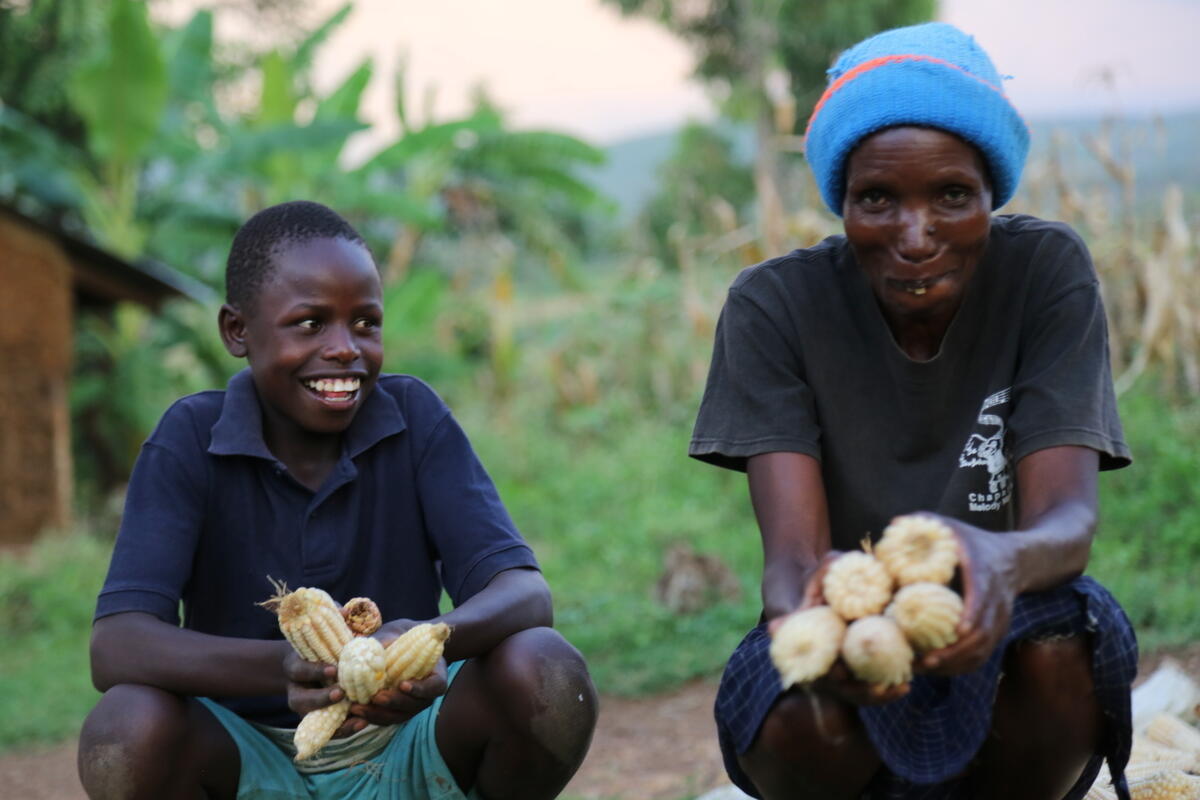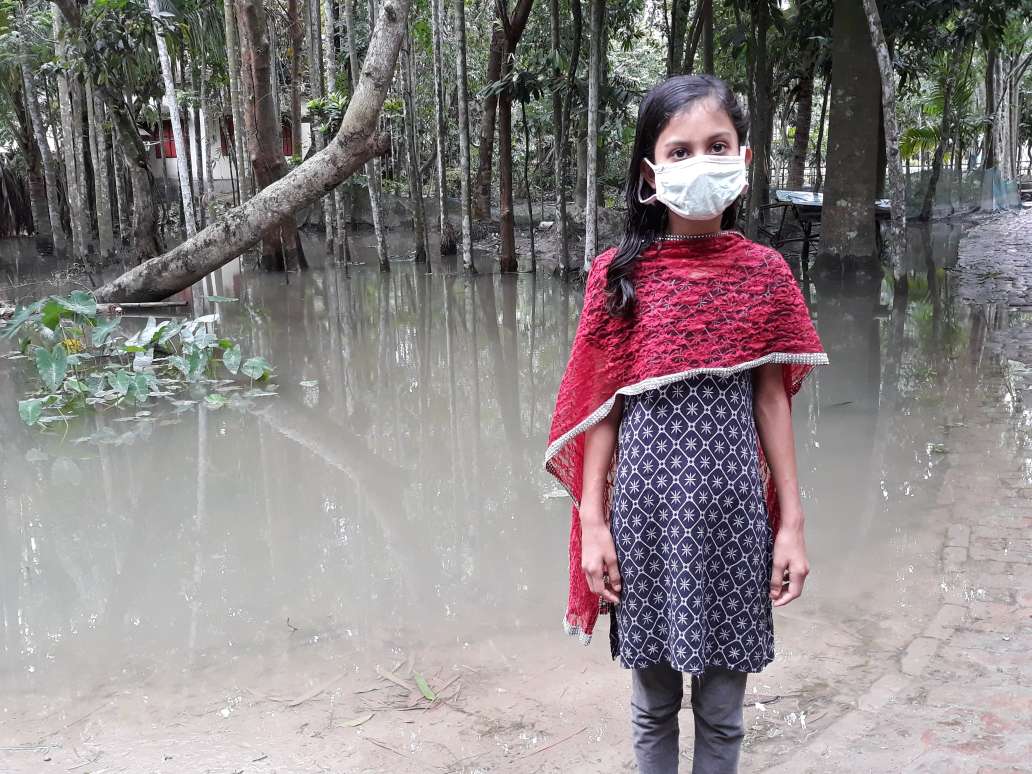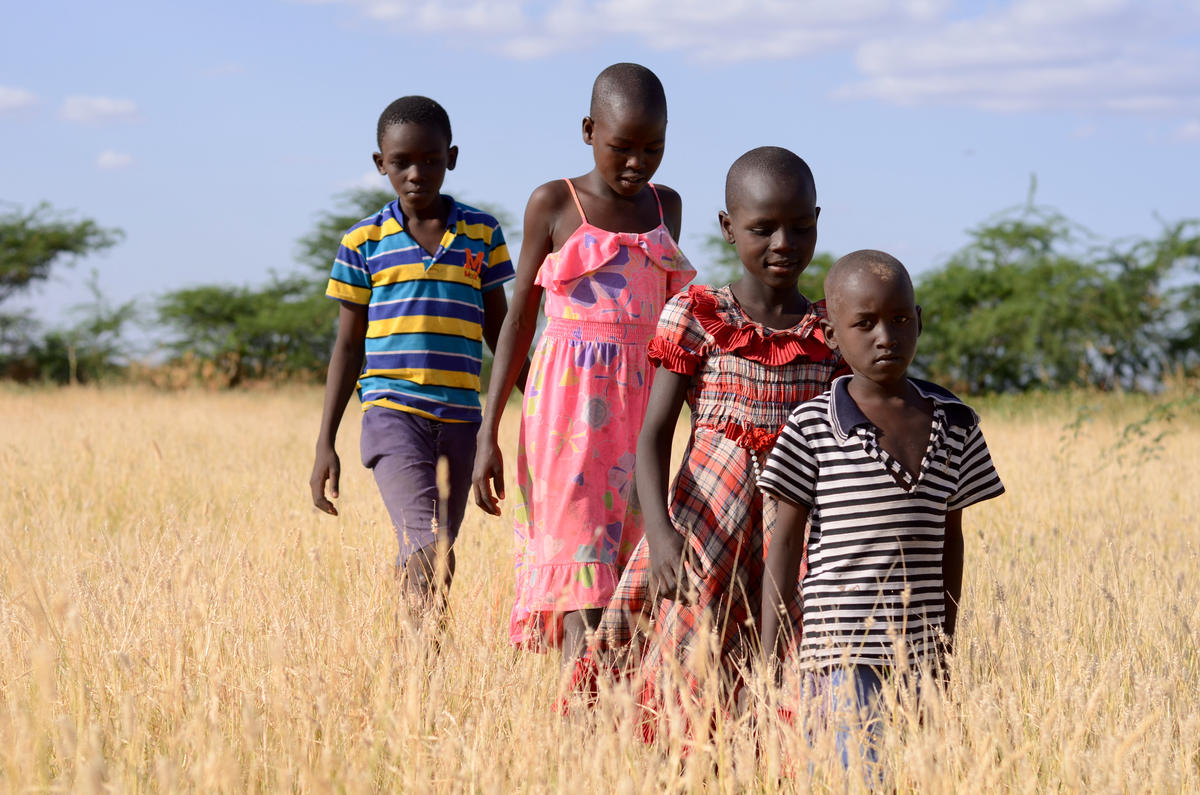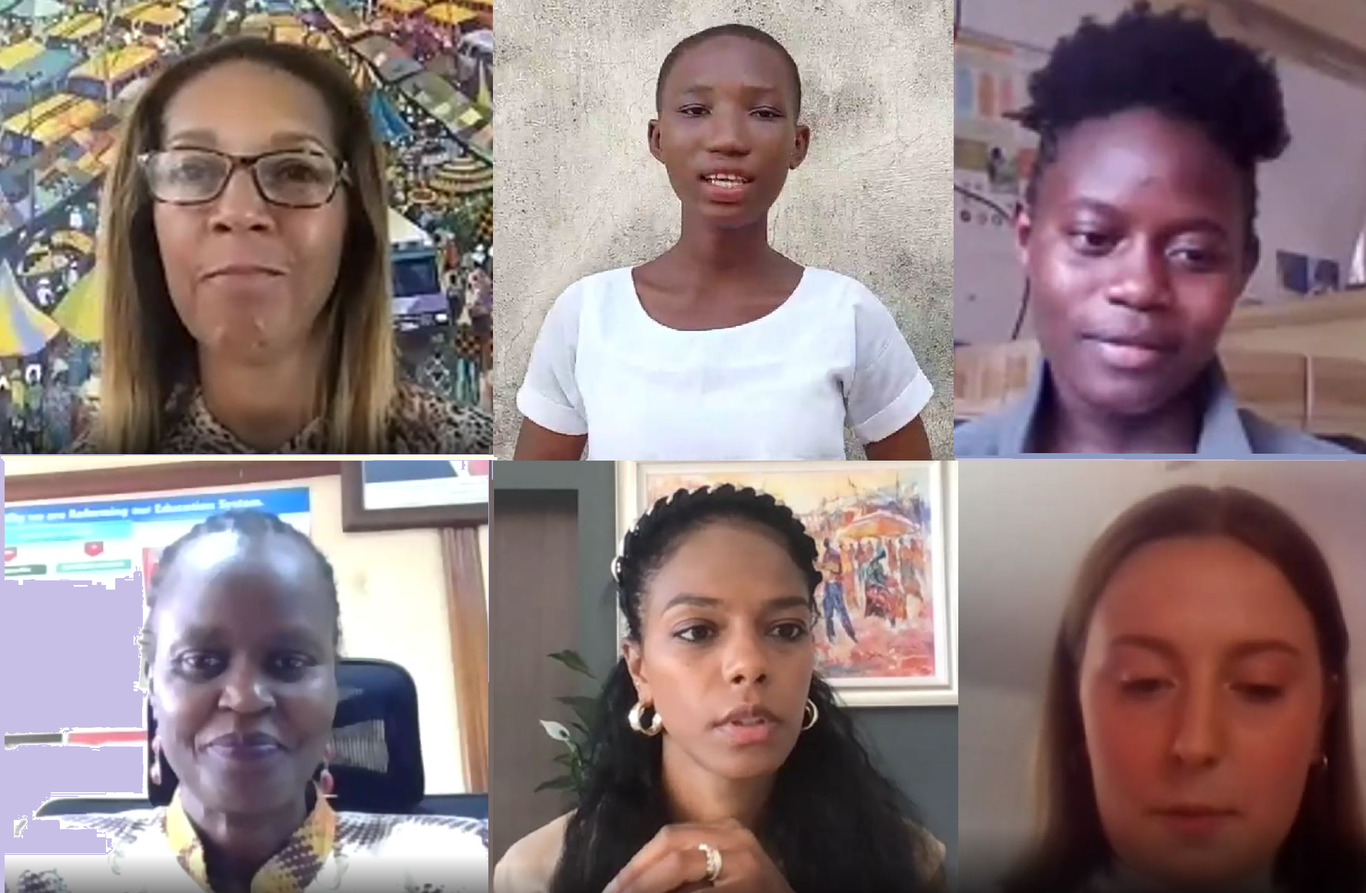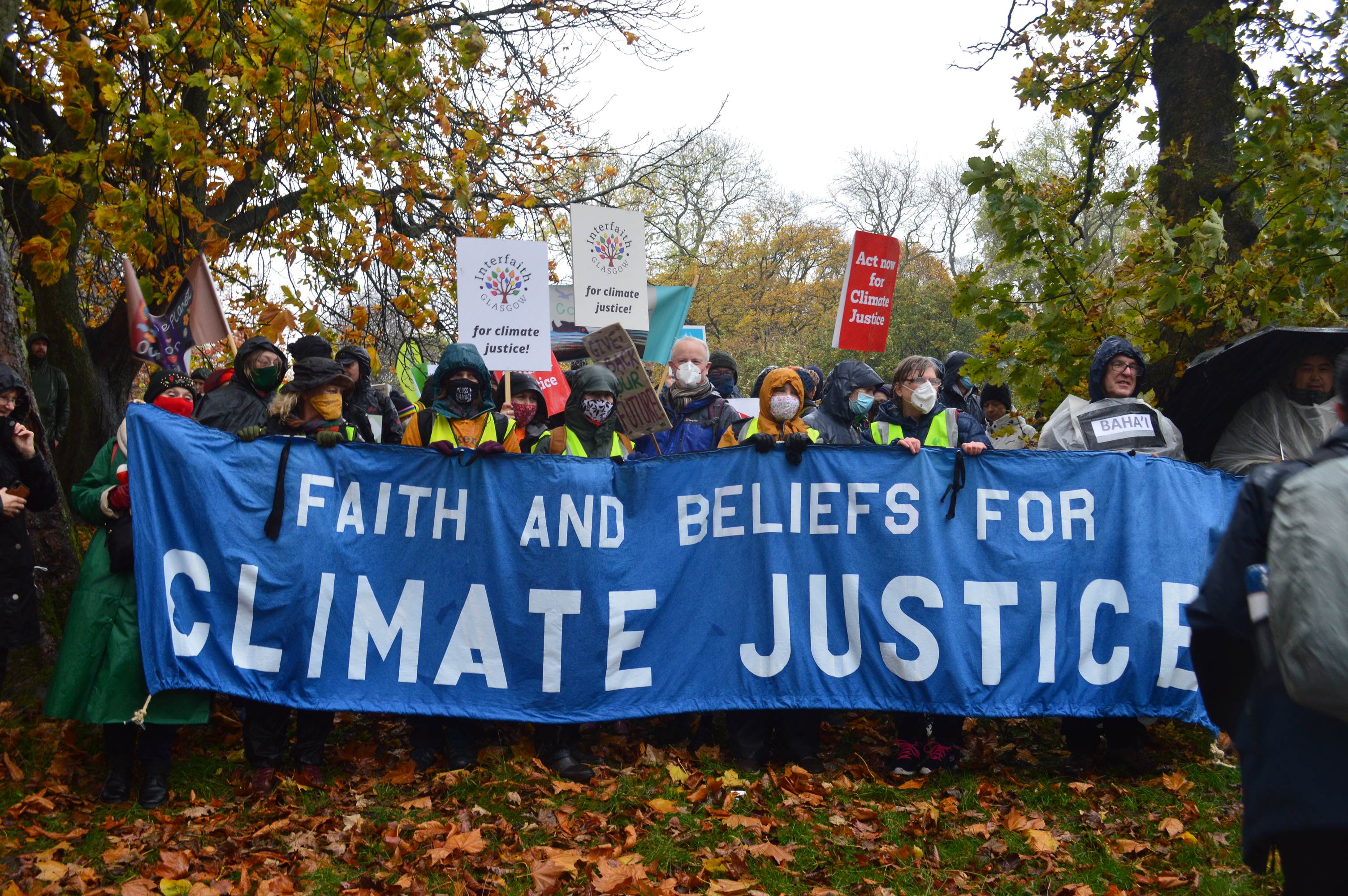
Addressing climate justice at COP26
The COP26 conference was held in Glasgow from 31 October to 12 November. World Leaders gathered in Glasgow to discuss how countries can collectively tackle the effects of climate change and to put forward new commitments that protect the most at risk.
We've seen how vulnerable children around the world are among those most affected by the impact of climate change. Increased droughts, unpredictable rainfalls and frequent floods are putting more pressure on already fragile communities - who then struggle to grow food. This can result in forcing people to flee their homes, which then increases the risks of child sexual exploitation and child marriage.
World Vision believes that every child has the right to both a healthy and safe environment today - and a sustainable future.
We've been working closely with communities and partners to reduce the impact of climate change on vulnerable children.
But as we saw at COP26, government action is also urgently needed to protect the world’s most vulnerable children and their communities from the increasing impacts of climate change.
So, what did COP26 achieve?
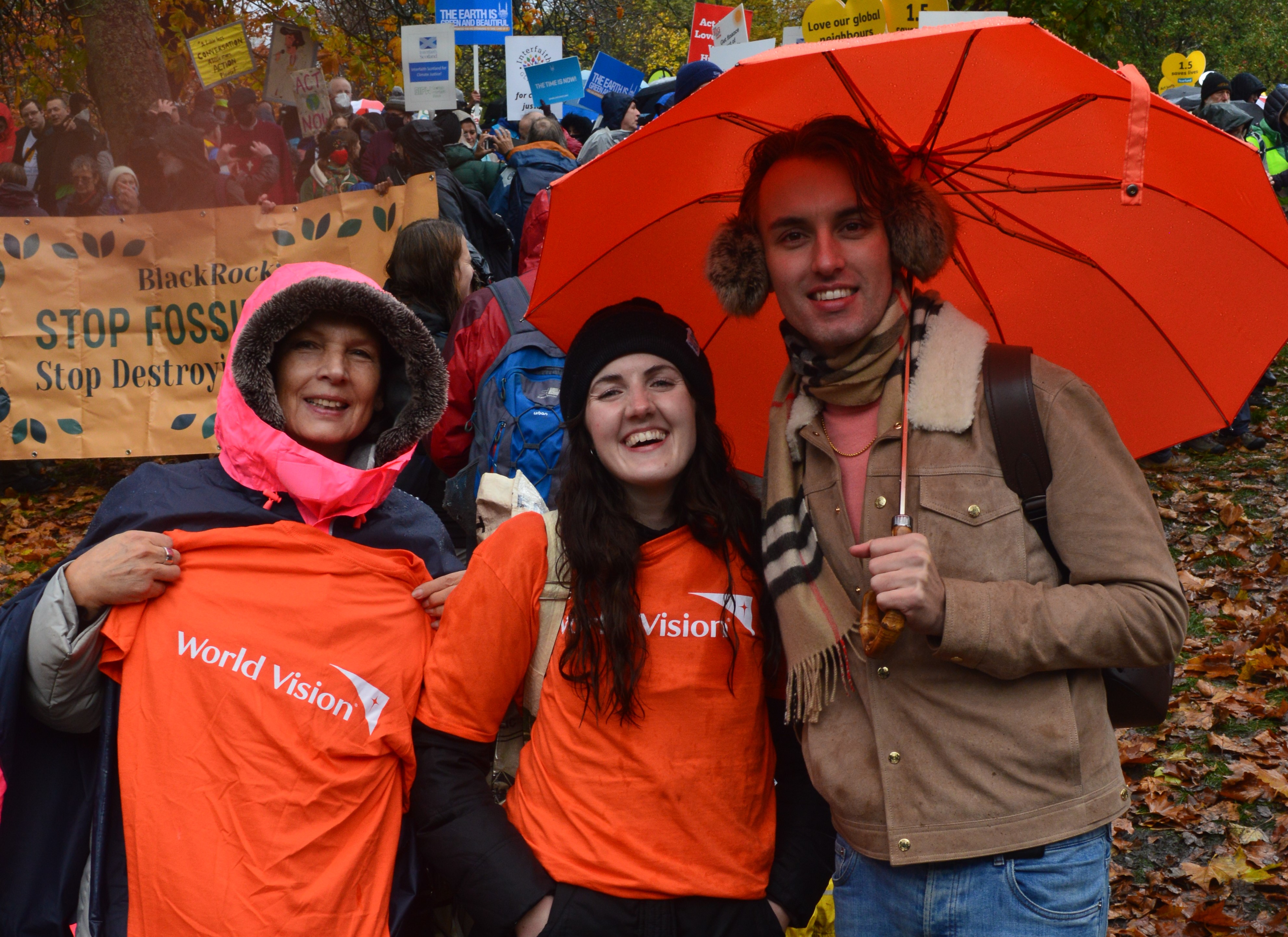
Did COP26 deliver real action?
Our aim by taking part in various events throughout the COP26 conference was to persuade decisions makers to make ambitious commitments that will tackle the climate crisis and will promote climate justice.
We want the poorest countries and the most vulnerable communities to benefit the most from the agreements and commitments.
So, what did we achieve amongst the commitments we were pushing for?
1. Ensuring that global temperature increases remain below 1.5°
Some progress has been made in limiting global temperature increases, but nowhere near enough to keep temperature rises below 1.5°. Current estimates suggest that the world is set for an increase of 2.4° above pre-industrial levels. This will mean that climate change will continue to have severe negative impacts on the poorest and most vulnerable communities across the world.
2. Increasing children and young people’s participation in decision-making forums at local, national and international levels
There's an increasing role for young people in climate discussions and decision-making processes, but less so for children. One of the documents agreed at COP26 does mention the need to “develop guidelines for enhancing public participation in climate change decision-making and the inclusion of children and youth”, which is encouraging, but it hasn’t been given a high profile.
Children and young people will continue to make their voices heard through their campaigning, and World Vision will also work with children from the most vulnerable countries to raise their voices at important events like COP26.
3. Significantly increase climate finance available for the least developed countries, and targeted at the most vulnerable communities
Back in 2009, the developed countries committed to increase climate finance for the world’s poorest countries to help them adapt to climate change. The amount made available was due to reach US$100 billion per year by 2020.
However, this amount has not been reached, and at COP26, it has been admitted that this figure is unlikely to be reached until 2023.
This lack of adequate support for those on the front line of climate change is very disappointing. However, there is some hope that from 2025 onwards there may be substantially more finance made available. We must keep the pressure on leaders to ensure that a clear timeline for this is put in place and that they keep to these commitments.
4. Increase investment in programmes to protect and restore local environments and ecosystems, in ways that support vulnerable communities’ food security and livelihoods
In the first week of COP26, the Glasgow Declaration on Forests and land use was launched and has now been signed by 141 countries.
This is potentially a very positive development and should go a long way to stopping destructive deforestation, and also giving much more control over forests and the use of land to local communities.
The declaration refers to promoting land restoration, sustainable agriculture, food security and benefiting the environment, all of which is to be welcomed. This is very much in line with World Vision’s work with local farmers and communities to adopt climate-smart agricultural techniques and to restore forests through our approach known as ‘Farmer Managed Natural Regeneration’ which is a low-cost way of regrowing trees and restoring degraded ecosystems.
World Vision in Glasgow
World Vision was very busy in Glasgow, presenting workshops, running events, and attending various meetings throughout the conference to negotiate with key decision-makers and influence the outcomes of the decisions.
Here are a few of our highlights…
'The Future Children Want' Event
Our global CEO Andrew Morley spoke at an event “The Future Children Want” with the ‘Children in a Changing Climate Coalition’ to promote child voice in the decision-making process. You can watch a recording of the session on YouTube.
Cities 4 Children Event
World Vision Young Leader Nomundari spoke in an intergenerational dialogue seminar hosted by the Cities 4 Children Global Alliance to build resilient cities for children.
COP26 Global Day for Climate Justice
On Saturday 6th November World Vision staff joined the Global Day for Climate Justice March, as part of the ‘Faith and Belief bloc’ along with other faith organisations such as Tearfund, Christian Aid, Islamic Relief and Faith for the Climate. Together we called for Climate Justice and that world leaders make bold and ambitious commitments to tackle the climate crisis at COP26.
Climate Vigil
Also on November 6th, World Vision staff attended the launch of the Climate Vigil, which was led by the World Evangelical Alliance and other Christian organisations.
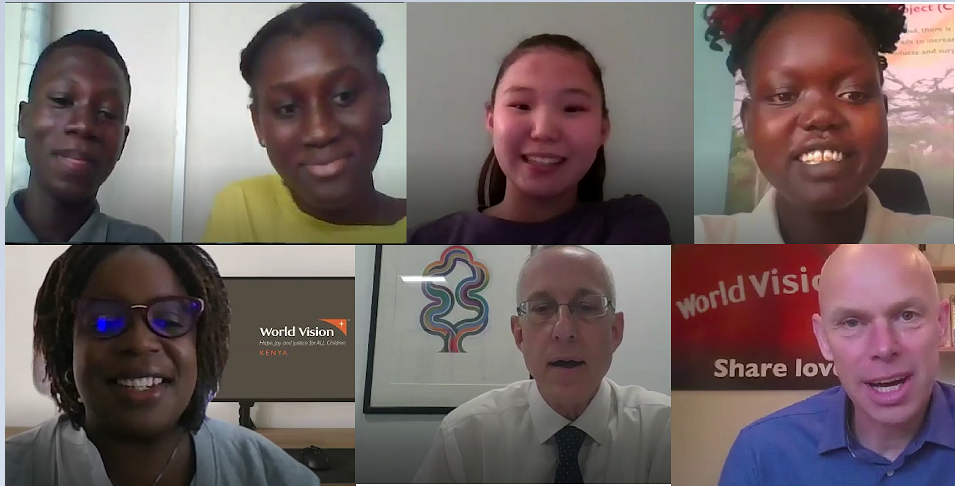
A New Report on Climate Change and Child Nutrition
Finally, we released a report on climate change and its impact on child nutrition to inform key decision-makers on climate justice. World Vision UK produced a report assessing the link between climate change and hunger and collaborated with World Vision International to produce a video discussing the findings. This video included the participation of Andrew Morley, the Global CEO, as well as Nick Dyer, the UK’s Special Envoy for Famine Prevention, and international youth advocates including Ruth from Kenya, and Tenema from Sierra Leone. This report was launched at a special event attended by journalists and major donors. Watch the full video below.
Our Global CEO Andrew Morley also caught up with World Vision Ambassador Krish Kandiah to talk about the importance of promoting the voices of children in climate change discussions.
COP26 is finished... now what?!
If you're part of a church community, you could make use of the various resources that are available on the Climate Sunday website, including resources from World Vision to inform your congregation. Or you could host a Climate Vigil, using the video launched at COP26 or the resources available at Climate Vigil.

